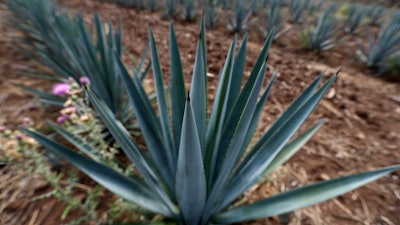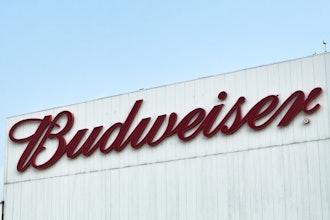
EL ARENAL, Mexico (AP) — After decades of building a domestic market for Tequila Cascahuín, Salvador Rosales readied the family business for a plunge into the U.S. export market this year. He made sure he had a stable supply of high-quality blue agave, the succulent whose juice is distilled into tequila, so that once they planted their flag, they wouldn't disappoint.
Tequila Cascahuín envisioned exporting about 350 to 420 cases to the United States this year and building from there. But those plans could be derailed by President Donald Trump's threat of tariffs starting at five percent and rising higher until he is satisfied Mexico is doing enough to stop the flow of Central American immigrants through its territory.
"We were just getting into the United States market with prices already impacted by the high price of agave," Rosales said. "With this increase, our sales are going to decrease." Last week Trump shocked Mexico and many members of his own party with a June 10 deadline to impose the unilateral tariffs on all Mexican imports, potentially making avocados, flat screen TVS, cars and other products more expensive for U.S. consumers.
Exporters of tequila, the key ingredient in margaritas, are as worried as anyone about possible slumping revenues and job losses, particularly if tariffs were to reach the 25 percent ceiling laid out by Trump. Multiple tequila industry insiders said privately that some companies had been rushing to export as much as possible ahead of Monday's tariff deadline. With most of this year's overall inventory likely already in the United States, the biggest impact would be on next year's supply.
Mexico exported more tequila than ever before in 2018, more than 222 million liters to 120 countries, said Ramón González, director of the Tequila Regulating Council. Eighty-two percent of that — 92 gallons (350 liters) per minute — went to the United States. It was worth $1.4 billion, the Distilled Spirits Council of the United States says.
Consumers are the ones most likely to be hit by the brunt of tariffs as sellers raise prices, though some importers could decide to absorb some of the cost. If tariffs do lead to a slide in sales, as Rosales and others fear, it could ripple through rural economies.
"It worries us because we could see the volume impacted in a very, very big way," González said. Lower volume would hit agave growers, bottlers and retailers, potentially leading to unemployment in an industry that directly employed 70,000 people in 2018. What we really need to be doing now is continuing to create rural jobs ... so there isn't migration, and it seems like all of the measures are leading toward unemployment, migration," González said.
"Instead of attacking it, it stimulates it. It's not just going to be our Central American or South American brothers who are driven to migrate," he continued. "It's going to be Mexicans, too. The fact that people could potentially be left without work in the countryside and in the industry is worrisome for our country."
North of the border, concern also goes beyond the prospect of pricier margaritas.
The Distilled Spirits Council of the United States fears Mexico would respond with retaliatory tariffs as it did when Trump imposed duties on steel and aluminum imports. At the time, Mexico slapped tariffs on American whiskey among other things.
"Depending on the level, tariffs on tequila imports from Mexico could result in a loss of $185 million to $859 million in retail sales and the elimination of 2,000 to 9,000 U.S. jobs," the council said in a statement. Mexico is the 10th largest market for U.S. distilled spirits exports.
Trump's announcement came the same day Mexico announced it was beginning the process to ratify a new free trade agreement, demanded by Trump to replace NAFTA. Mexican President Andrés Manuel López Obrador dispatched his foreign affairs minister to Washington the next day to try to head off the tariffs in discussions.
At Tequila Cascahuín, exports account for just 20 percent to 25 percent of production — but it was a growing part of the business, especially as the company expanded to the U.S. market. The last week's news has left Rosales scratching his head over how migration by Central Americans could indirectly hurt his bottom line.
"It's a topic totally apart from the industry," Rosales said, "because we don't control immigration."






















